Business Outcome Orchestration

Too many steps; Too many apps
Enterprise employees are overwhelmed with a burgeoning list of apps in the workplace. A typical enterprise uses 397 apps on average¹. These apps are involved in many business processes across multiple teams and departments, many with separate user interfaces and terminology. Employees must memorize complicated processes across apps, forcing typical knowledge workers to switch between 35 job-critical applications more than 1,100 times every day². The current app overload adds to workflow chaos, eroding productivity and causing employee burnout.
AI-led tools "Focus more on context and adapting to people and less on task and process flows...[and] AI-led process improvement will take a people-first approach. Context will drive required actions within a single UI experience centered around the customer or employee journey.”
Twelve Criteria Help Choose Among DPA, Embedded Process Support, RPA, And AI-Led Platforms, Forrester, October 2021
Krista automates and improves business outcomes
Krista Intelligent Automation combines human workflows, native integration, and machine learning to optimize complete business outcomes. Krista saves valuable time and labor costs for your customer service, finance, sales, and human resource teams by simplifying workflows in an easy-to-follow user interface and involves people only as needed.
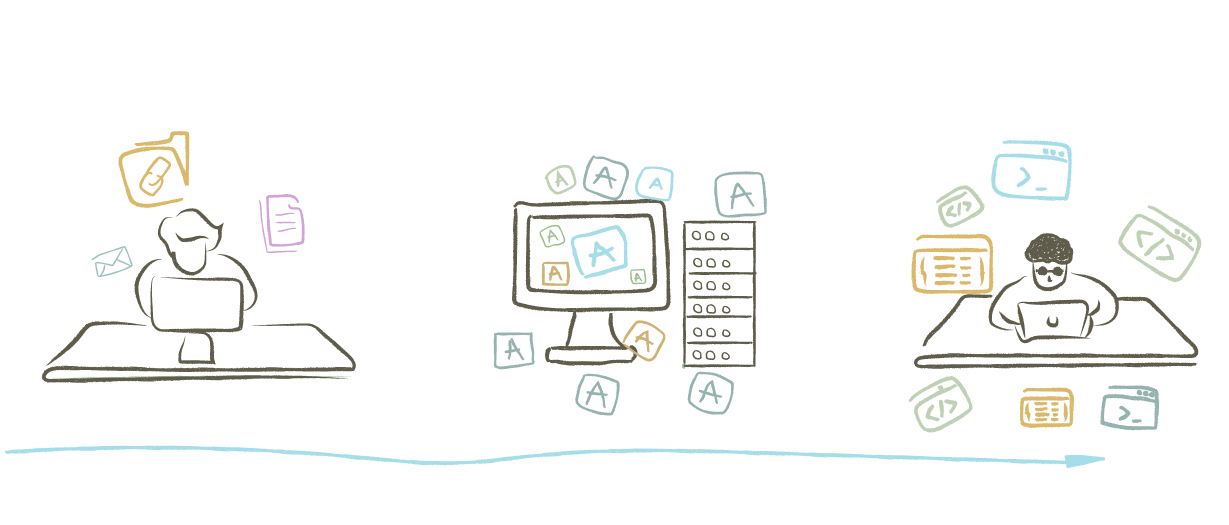
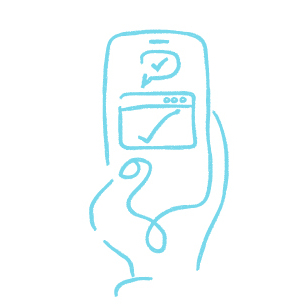
Krista reduces complexity for your people
Krista connects with your email, internal apps, data sources, ticketing systems, and AI to automate end- Krista connects your people, internal apps, and AI to automate end-to-end business outcomes instead of forcing employees to remember the steps or people involved. Once connected, Krista’s natural language processing helps employees quickly find answers in a format they already understand. Automating processes in consistent, automated workflows with intelligent automation frees your people from constant app switching and allows time to spend on more complex issues. Most importantly, automating this and other processes in a platform provides centralized performance, audit, and compliance reporting.
How can your organization benefit?
Intelligent automation can be applied to several business functions in every industry. Some examples include:

Sales Support and Order Management
Krista orchestrates order delivery across sales operations to DevOps for deploying and finally to accounting for invoicing.

Finance and Accounting
Krista reads inbound EDI or paper invoices, validates via AI, and then matches invoice to PO ensuring no maverick buys occur.

Human Resources
Krista directly answers inquiries from employees about vacation or benefit related questions.

System Generated Security Alerts
Krista correlates alerts to combine duplicates so security analysts can work on highest priorities.

Phishing Attempts
Krista automates resolutions and quarantine devices when connected to security systems.

Requests for Information
Krista’s NLP enables her to answer many other questions when connected to internal apps and data sources.
Other available resources
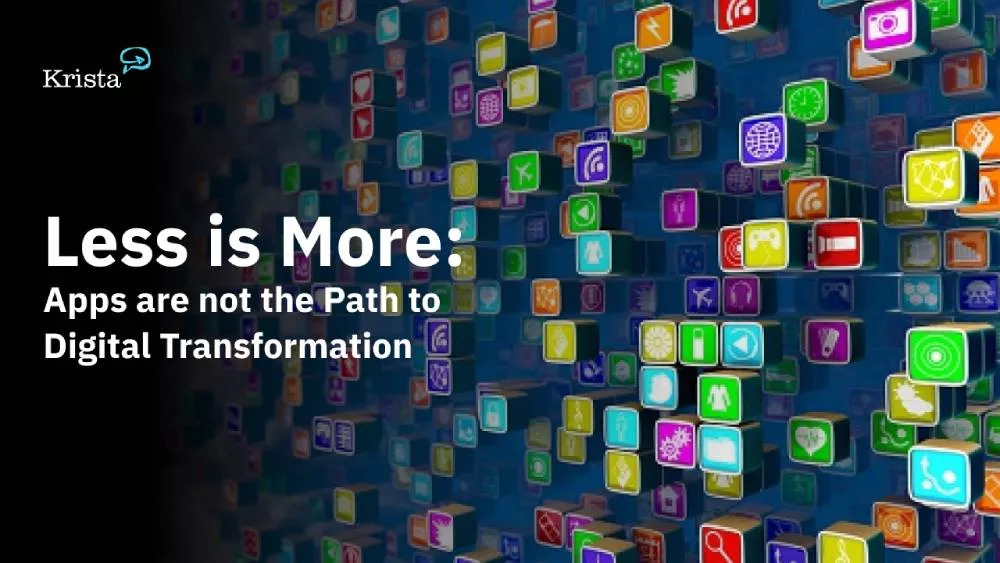
Whitepaper | Apps Are Not the Path to Digital Transformation
LCAPs promise to simplify and speed up development to create more apps faster but more apps cause more problems. Read how creating more apps may make your digital journey more difficult.
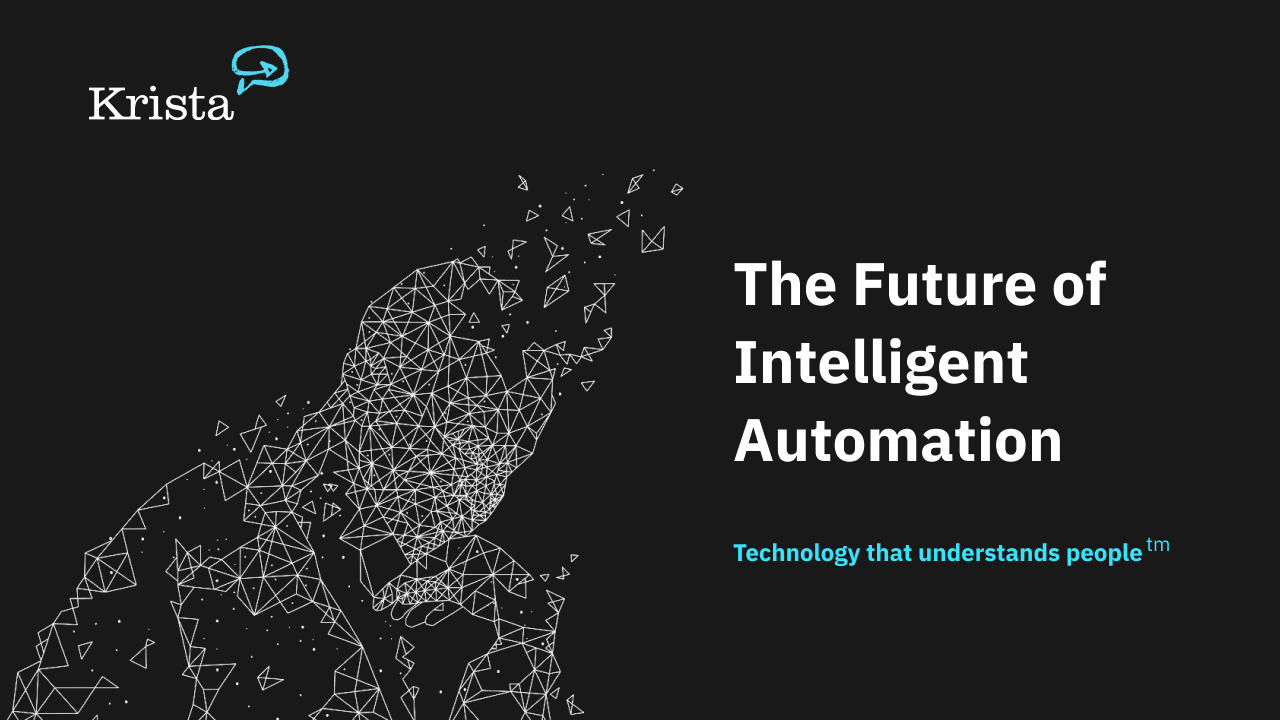
eBook | The Future of Intelligent Automation
Digital transformation is building or optimizing business models using modern digital technologies. Today, the speed at which your company transforms depends on your ability to change your systems and change your people.
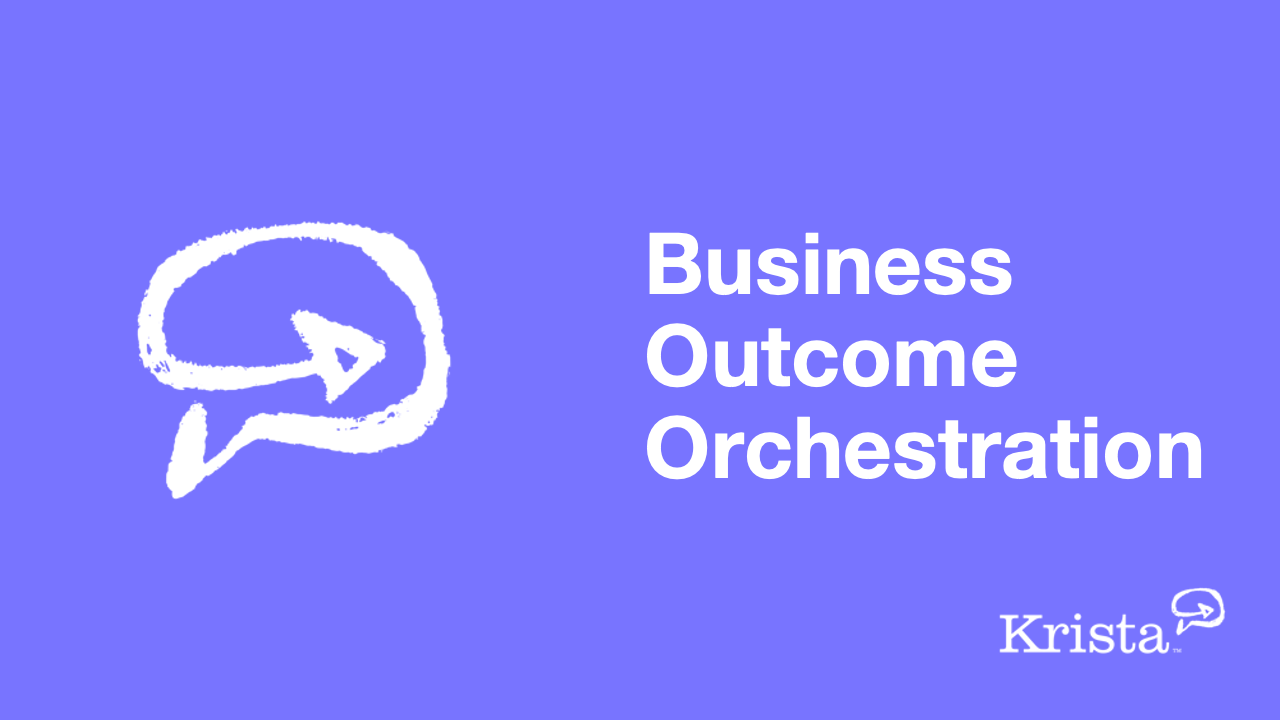
Datasheet | Outcome Orchestration
Krista Intelligent Automation orchestrates your people, internal apps, and AI to automate and optimize complete business outcomes.


